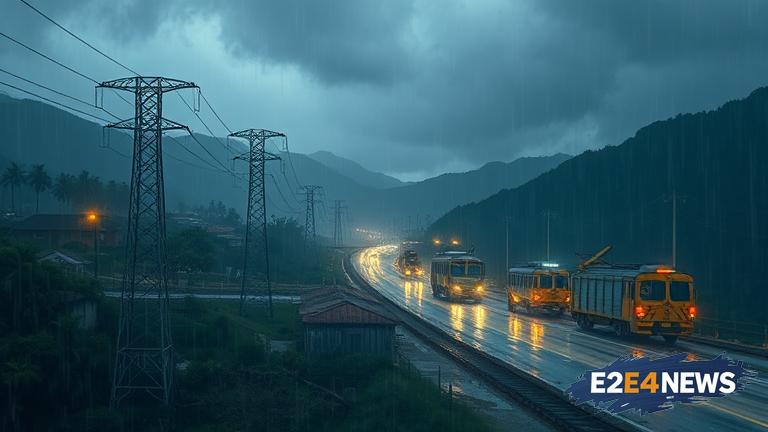Papua New Guinea has been experiencing severe power outages in recent days, with many areas affected by the heavy rainfall that has been pounding the country. The outages have been reported in various provinces, including the National Capital District, where thousands of residents and businesses have been left without electricity. The heavy rainfall has caused significant damage to the power infrastructure, leading to the outages. The Papua New Guinea Power Limited, the state-owned power company, has been working to restore power to the affected areas. However, the company has faced challenges in accessing some of the remote areas due to the heavy rainfall and flooding. The power outages have had a significant impact on the daily lives of residents, with many businesses and services forced to close temporarily. The outages have also affected the country’s economy, with many industries relying on a stable power supply to operate. The government has assured the public that it is working to address the issue and restore power to the affected areas as soon as possible. In the meantime, residents have been advised to take necessary precautions to ensure their safety during the outages. The heavy rainfall has also caused significant damage to the country’s infrastructure, including roads and bridges. The National Disaster Centre has been activated to coordinate the response to the disaster. The centre has been working closely with other government agencies, including the Papua New Guinea Power Limited, to restore power and provide assistance to affected residents. The power outages have also raised concerns about the country’s preparedness for natural disasters. The government has been criticized for its slow response to the disaster, with many residents calling for more to be done to address the issue. The power outages have also highlighted the need for the country to invest in its power infrastructure to prevent such outages in the future. The Papua New Guinea Power Limited has announced plans to upgrade its infrastructure to improve the reliability of the power supply. The company has also announced plans to invest in renewable energy sources, such as solar and wind power, to reduce the country’s reliance on fossil fuels. The power outages have had a significant impact on the country’s healthcare system, with many hospitals and healthcare facilities forced to rely on backup generators. The outages have also affected the country’s communication systems, with many phone and internet services disrupted. The government has assured the public that it is working to restore power to the affected areas as soon as possible and to prevent such outages in the future. The power outages have also raised concerns about the country’s ability to host major events, such as the upcoming Pacific Games. The government has announced plans to invest in the country’s infrastructure to improve its ability to host such events. The power outages have also highlighted the need for the country to develop a comprehensive disaster management plan to address the impact of natural disasters. The plan would include measures to prevent and mitigate the impact of disasters, as well as to respond to and recover from them. The government has announced plans to develop such a plan, which would include the participation of all relevant stakeholders, including government agencies, private sector companies, and civil society organizations.





